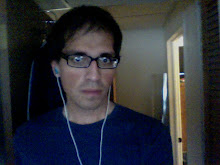It's not an unknown fact that Oprah has an entire evil empire of media at her disposal. She controls television and magazines and dictates suburban housewives more than almost any other person on this planet. Yes, her story is as awe-inspiring as one of those self-help books and her reach is far and despite all the problems I have with her, her interview style and the way she introduces people ("Lades and gentlemen, Cormac MMMMMMMMMMMMMMMMMMMMMMMMMMMMMCCARTHYYYY!"), I think that the only honest part of her conglomeration, the only thing whose impact is actually benefical and benevolent, is her book club.
I've been through classes where people go, "Oh man, she chose that book?" And, yes, some of her choices have been real stinkers. Like:
A Million Little Pieces by James Frey (which doesn't go with that whole creative nonfiction ethics thing as much as the fact that the book is terrible on all sorts of levels.)
The Corrections by Jonathan Franzen (literary masturbation)
A New World by Eckhart Tolle.
The Pillars of the Earth by Ken Follett
A couple collected works by Bill Cosby.
But, on the other hand, she has chosen some of the most important, moving, beautiful, and challenging novels of the 20th/21st century, including:
One Hundred Years of Solitude
Love in the Time of Cholera by Gabriel Garcia Marquez
As I Lay Dying
The Sound and the Fury
A Light in August by William Faulkner
Middlesex by Jeffrey Eugendis
The Road by Cormac McCarthy
Song of Solomon by Toni Morrison (actually, Oprah seems to be a major Morrison fan.)
East of Eden by John Steinbeck
Ana Karenina by Leo Tolsty (!)
See, the thing about Oprah is that quite a lot of people listen to her and all these books suddenly become huge. I mean, I saw Love in the Time of Cholera and The Road at gigantic chain stores where most of the people probably have never heard of Garcia Marquez or McCarthy previously. She helps these authors climb up the charts and -- and this is the important part -- she opens a wider world toward suburban housewives and middle aged women, her, you know, primary audience. And Josh Peck.
People are reading these books! To me, that seems more important than anything else. They are reading them, thinking about them, wondering how the themes or the voice or the delivery affects them, and then discussing them on the Internet. Even the people who say truly stupid things like, "Oh this book was so depressing that I didn't like it," on Amazon.com have at least thought about it a bit. We could get into an entire discussion of the purpose of literature and the movement of words, but I can't see how people can complain if these works, major works in many cases, reach out to more and more people.
A lot of the reaction against her reminds me of a lot of indie kids I know. You know the kind, who like a band simply because no one else likes them, or rather a few other people enjoy them but not a vast majority. Then, once the band gets big and known, through a TV commercial or quirky indie movie, they are automatically uncool. That just doesn't make sense to me. If you like something, you like it for however long you do, and the influence of others should not defer from that.
And books are so much more personal than almost any other form of media. Each and every person recieves their own pictures and images, their own views of the characters and interpretations of events. Even when they're read aloud, the interpretations are vastly different from person to person. You can share a book but you can't share the experience.
So yes, sometimes Oprah picks pieces that are overly melodramatic (Wally Lamb), are focused on incest and abuse, but I think its fantastic Faulkner, for a summer, recieved a larger readership; that people picked up a Russian family saga; or the Colombian portraits. It's unfair that many of these highly literate books should be regarded to college campuses and libraries when pure and true trash occupies many peoples' bookshelves.
Of course, I can see the problem with that people are only reading the books because Oprah has told them to. That they aren't going to discover them on their own and once they close the covers of Sound and the Fury, they're going to preorder the newest Dan Brown or Nicholas Sparks or Danielle Steele book, which means they won't appreciate it in the way that it should be appreciated, but maybe, just maybe, a few seek out other books by the authors, refine their literary tastes and become better readers. Or, if not that, that these books remain with them for many many years later. Images from Faulkner and Garcia Marquez and McCarthy and Morrison still reside with me years after I've read them.
Her latest choice is The Story of Edgar Sawtelle, which I read over the summer and it is very good. Yes, it has flaws, but it's a debut work and Wroblewski will need to figure out what works and what doesn't, but overall, it's very very good. I mean, Hamlet set in rural Wisoconsin mixed with a simple boy-and-his-dog story? That's a brilliant idea. And someday I think Wroblewski is going to write something very very good. Amazing, even.
Don't read it simply because Oprah suggestted it, but because it is just a very fine novel.
3 years ago

2 comments:
You are a twat.
David?
Post a Comment